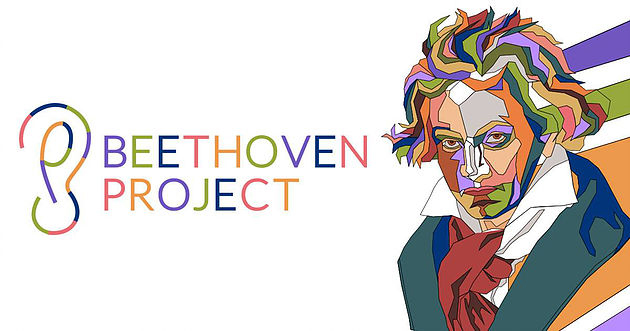Regarded as one of the most definitive composers of the classical period and the bridge to the romantic period, Ludwig van Beethoven has continued to be a vivid presence through his music. With the coming of his 250th birthday in December 2020, the Binghamton Philharmonic is paying tribute to his life and works with the Beethoven Project.
The Beethoven Project kicked off with its first event, “Beethoven: A Legacy of Isolation and Amusement” on Sept. 28 with the Binghamton Philharmonic performing Symphony No. 1 and No. 2. The Binghamton Philharmonic will perform all nine symphonies by the end of the two-season project.
The project is the result of a collaboration of more than 25 different organizations, each of which will host various events throughout the duration of the program.
“Beethoven Project events range from concerts and recitals to a 5K race, Bee(r)thoven Beer Festival and Murder Mystery Party, with many events in between,” said Andrea Carey, interim executive director of Binghamton Philharmonic.
This weekend, Theatre Street Productions contributed by showcasing the living history of Beethoven’s music at “Beethoven at the Phelps,” hosted by the Phelps Mansion Museum. Yü Lee on piano, Christina Docenko on violin and Daniel Eby on cello gave a performance that aimed to highlight the dynamics of his music.
“You can just play through it and give it a normal monotone view, or you can try to deep dive into the music,” Docenko said. “What do you think [Beethoven] meant here? I don’t know, I think he was trying to pit the pianist and the cellist against each other.”
In the first piece of the evening, Beethoven’s Piano Trio, Op. I, No. 3, Docenko and Lee played out the sarcasm of Beethoven’s music by utilizing theatrical facial expressions and body language to demonstrate a spar between the pianist, violinist and cellist. The audience laughed along on the journey of melodramatic expression of frustration, shock, anger, confusion and calm.
Lee, who played piano as accompaniment to an opera performance by Andrea Gregori and Cole Tornberg, ‘18, emphasized his connection to history through music.
“What I found more and more was the connection I made across time,” Lee said. “When I study a piece, with every note, every word, I would see exactly what the composer or lyricist saw. That brought me extreme joy.”
In addition to sharing Beethoven’s music, the Beethoven Project draws attention to the critical fact that the artist, for much of his career, was composing while deaf.
“[The Beethoven Project] also raises awareness for the deaf and hard of hearing through lectures and demonstrations of Beethoven’s declining hearing throughout his life,” Carey said.
Prior to every Binghamton Philharmonic performance, there will be a pre-discussion with audiologist Rebecca Jacob, who explores the psychosocial impacts of hearing loss and how to compose music while deaf. The Binghamton Philharmonic performances are made deaf-friendly by allowing those in the audience who are deaf or hard of hearing to reserve seats by an interpreter.
Upcoming events include Tri-Cities Opera’s event “We Shall Find Peace,” which is in celebration of veterans and those currently serving in the military and the Roberson Museum and Science Center’s “Bridge to Beethoven: Exploring Music in May” which will share the science of music and planetarium shows to explain what influenced Beethoven’s music.
“The goal of the project as a whole is to expose our community to organizations and events that they may not otherwise attend, through the efforts of cross-promotion and wide variety — all in the name of Beethoven,” Carey said. “The creativity of our community is truly remarkable.”
The Beethoven Project will continue performances and events until December 2020.



